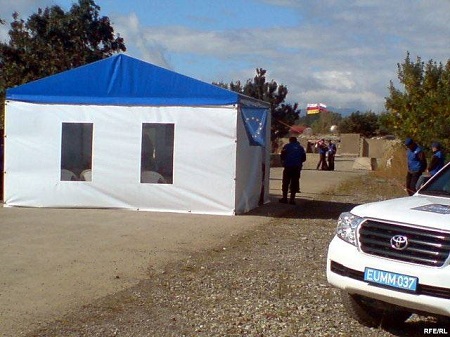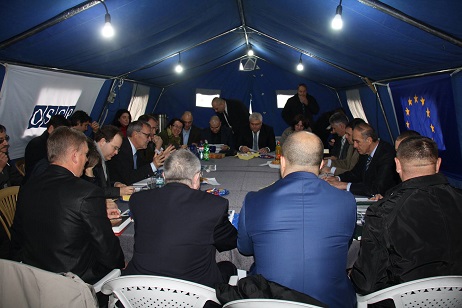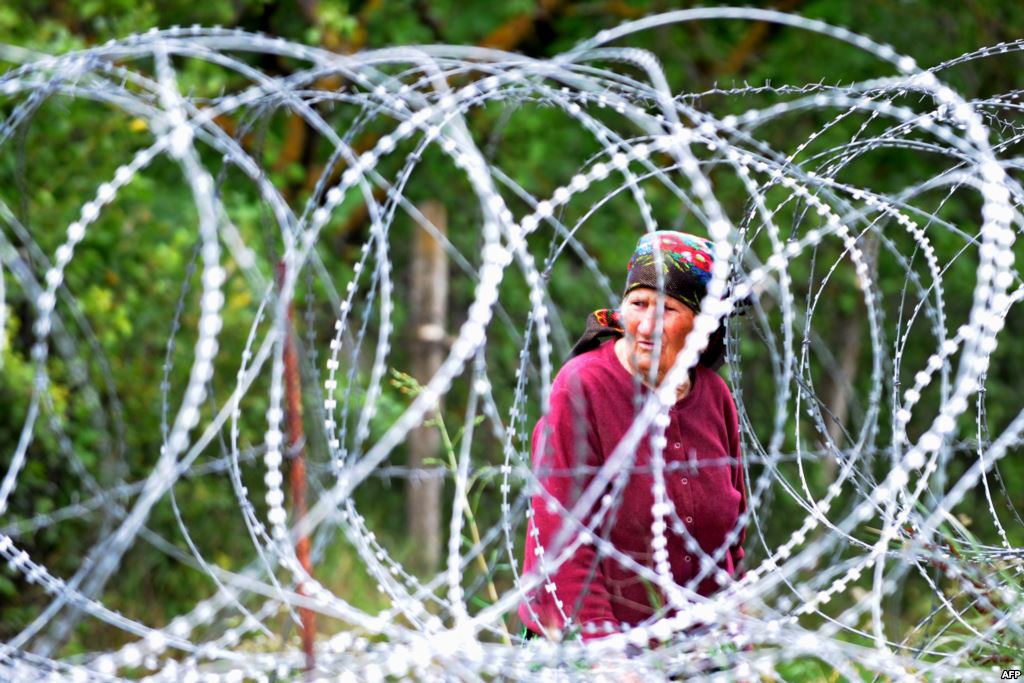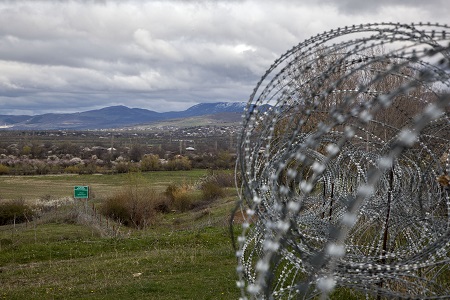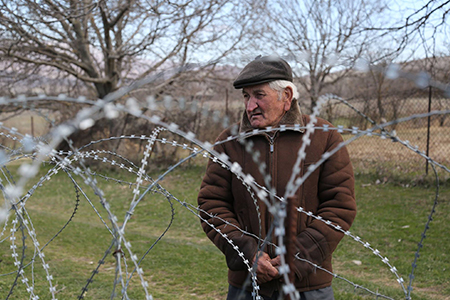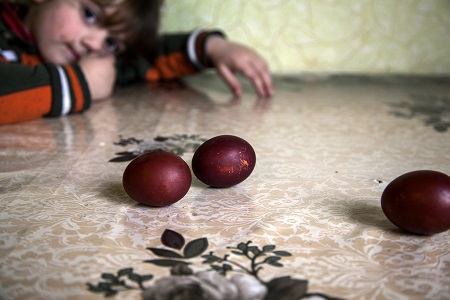Easter behind barbed wire fences
Women’s Information Centre brings Easter to Khurvaleti
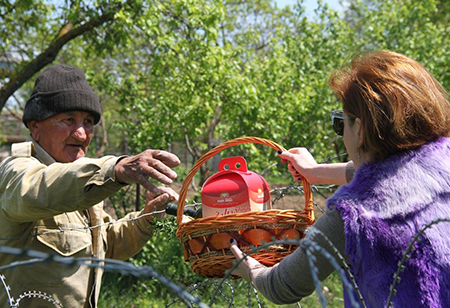
Fourteen people from a local non-profit organisation visited a family living behind a barbed wire fence at Khurvaleti village today to celebrate Easter with them.
Khurvaleti village now lay on the border of Tskhinvali region (South Ossetia) – one of Georgia’s two breakaway regions – which was at the epicentre of the short but deadly Russia-Georgia war in August 2008.
After the war Russian border guards set a new Administrative Boundary Line (ABL) between Georgia and Tskhinvali region, erected a barbed wire fence spanning 50km along this arbitrary line through Georgian villages and announced it was the new "state border”.
Any attempt Georgian villagers make to cross the barbed wire fence is treated as a "violation of the state border” and the so-called offenders are arrested and taken to Tskhinvali prison. Moscow calls this "border security” while Tbilisi and the rest of the international world call it "creeping occupation” of Georgian land.
Read story about 'Georgia: Easter behind barbed wire' on Agenda.ge.
The occupation line has isolated the house of Davit Valishvili and his family from the rest of Khurvaleti village. The village cemetery was on their side of the fence while the rest of the village was on the other side.
For the past eight years the Valishvili family have continued the Easter tradition of rolling eggs on the graves of people, whose relatives cannot come into the occupied territory to access the village cemetery.
However the isolated family also feels pressure from Russian military forces, especially when they have Georgian "guests” behind the barbed wire fence like they did today.
Fourteen people from the Women’s Information Centre spent time with the Valishvili family and helped them celebrate Easter.
Easter eggs, special Easter cake called paska and a bottle of wine are traditionally eaten at Easter time in Georgia. This was why we wanted to create the feeling of this special holiday for the Valishvili family and remind them that they are not alone,” said a press release issued by the Women’s Information Centre.
While they couldn’t cross the barbed wire fence, the guests from the Women’s Information Centre handed the Vanishvili family Easter eggs, traditional Easter bread and candles through the razor-sharp fence.
Through its peaceful demonstration just in front of the fence the Women’s Information Centre also wanted to call upon all participants of the [Geneva International Discussions] to somehow solve the problem of movement, at least on the Easter holidays so that ordinary people can go to the cemeteries and pray for the souls of their relatives,” said the Women’s Information Centre.
For Georgians, the most traditional part of an Easter celebration was visiting cemeteries and rolling an Easter egg on the graves of their beloved on Monday, the day after Easter Sunday. Because the barbed wire fence acts as an artificial border in Khurvaleti and nearby villages, locals are now unable to follow this tradition.
 Tweet
Tweet  Share
Share
